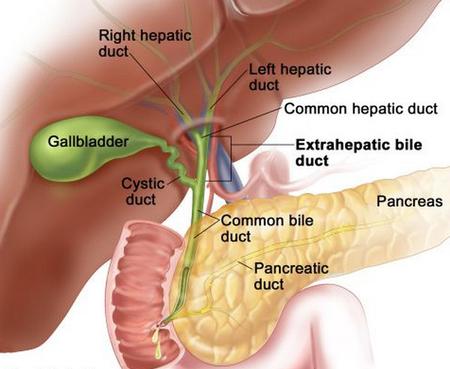Cholecystectomy in Athens
Search and Compare the Best Clinics and Doctors at the Lowest Prices for Cholecystectomy in Athens

Find the best clinics for Cholecystectomy in Athens
No pricing info available
Ukraine offers the best prices Worldwide
Price: $ 853
Bariatric Surgery GR, located in Pirgos Athinon, Athens, Greece offers patients Cholecystectomy procedures among its total of 6 available procedures, across 4 different specialties. Currently, there's no pricing information for Cholecystectomy procedures at Bariatric Surgery GR, as all prices are available on request only. All procedures and treatments are undertaken by the lead specialist at the Hospital, and they are not accredited by any recognized accreditations institutes
WHY US?
At Medijump, we're making medical easy. You can search, compare, discuss, and book your medical all in one place. We open the door to the best medical providers worldwide, saving you time and energy along the way, and it's all for FREE, no hidden fees, and no price markups guaranteed. So what are you waiting for?

Free

Best Price

Widest Selection

Risk-Free
What you need to know about Cholecystectomy in Athens

Cholecystectomy, also known as gallbladder removal, is a surgical procedure performed to remove the gallbladder. Your gallbladder is a small, pear-shaped organ in your tummy that stores bile – the digestive fluid that helps break down food. This surgery is performed if you have painful gallstones, which are small stones that form in your gallbladder due to an imbalance in the way your gallbladder works. Cholecystectomy is very common and around 80% of people who have gallstones will need to undergo this surgery. The necessity for a Cholecystectomy in can vary based on your specific symptoms and general health condition.
What is the cost of Cholecystectomy in Athens?
The expense involved in a Cholecystectomy in Athens can fluctuate due to many aspects like the surgeon's proficiency, the facilities of the hospital, and the overall health status of the patient. Utilizing health insurance benefits can help to alleviate some of the financial burden linked to the medical treatment. Having a comprehensive knowledge of what your insurance plan covers is critical before deciding to go ahead with the surgery.
In addition to the primary operation cost, it's vital for individuals to contemplate the post-procedure care and medication expenses involved during the recovery stage. The scale of these costs can differ based on the particular necessities of every patient. Discussing these potential costs with your health care professional is highly recommended to ensure you're well-prepared financially.
What does a Cholecystectomy Procedure Involve?
There are two techniques to perform cholecystectomy: Laparoscopic and open surgery. Laparoscopic is minimally invasive, meaning your surgeon only makes small incisions to insert a tube with a tiny camera and surgical tools into your abdomen. With open surgery, your surgeon makes a bigger incision in your abdomen below your ribs. Both procedures are performed under general anesthetic.
How Long Should I Stay in Athens for a Cholecystectomy Procedure?
Depending on which technique your surgeon used, you may need to stay in the hospital for 1 to 3 days. The stay might be extended if any complications arise during surgery or the recovery period. Plan to stay in Athens for around 1 to 2 weeks for initial recovery and for follow-up check-ups.
Some surgeons use dissolvable stitches to close the incisions, but if yours does not, the stitches may be removed within 7 days following the surgery. It is recommended that patients discuss their travel plans with the healthcare provider conducting the Cholecystectomy to ensure they have an accurate time frame.
What's the Recovery Time for Cholecystectomy Procedures in Athens?
The length of the recovery period depends on which technique you underwent. Generally, patients undergoing a laparoscopic cholecystectomy can expect a faster recovery time compared to those undergoing an open cholecystectomy. For laparoscopic surgery, you may be able to go back to work and return to your daily routine within 1 to 2 weeks. The time that your body needs to heal after open surgery is a lot longer, usually around 6 to 8 weeks.
What sort of Aftercare is Required for Cholecystectomy Procedures in Athens?
Post-Cholecystectomy, having a robust recovery plan is vital for achieving the best healing outcomes. This encompasses managing potential discomfort or pain effectively, maintaining the operation wound clean and dry, and slowly taking up routine activities under your healthcare provider's instructions. Adapting to a nourishing diet is equally essential since removing the gallbladder can impact the body's digestion capability of certain foods.
Frequent consultations with your medical professional for predetermined check-ups are needed to observe your recovery and confirm there are no complications post-surgery. Moreover, refraining from vigorous activities and heavy lifting for several weeks after the procedure is recommended. Bear in mind that the journey to recovery and attaining complete health post-surgery necessitates adherence to the fundamental aftercare steps suggested by your healthcare provider.
What's the Success Rate of Cholecystectomy Procedures?
The effectiveness rate of Cholecystectomy is predominantly high. The treatment, particularly through laparoscopic means, is deemed as a secure and efficient solution for conditions related to the gallbladder. As per numerous studies, the comprehensive success rates are above 90%, with minimal complications, thus supporting the respective medical research.
Nonetheless, it's crucial to note that every patient's health condition is distinctive, and the success ratio may vary individually. Elements like the patient's overall wellbeing, the intensity of gallbladder disease, and the surgeon's skill set can influence the outcome. Discussing these aspects with your healthcare provider is always suggested to gain a precise understanding of your personal prognosis.
Are there Alternatives to Cholecystectomy Procedures in Athens?
While Cholecystectomy is a frequently chosen surgical procedure to treat gallbladder diseases, there are alternatives available. The alternatives often depend on the severity of the symptoms and the overall health of the patient. Some alternatives include changes in diet and lifestyle, medications to dissolve gallstones, or nonsurgical treatments that break down gallstones. It is highly recommended to discuss all possible options with your healthcare provider to determine the best course of action for your situation.
Even though these alternatives can be effective, they may not be suitable for everyone. Medications may not always be successful in dissolving gallstones, and even if they do, the stones could recur once the treatment is stopped. Additionally, nonsurgical procedures may have restrictions depending on the size and number of gallstones present.
What Should You Expect Before and After the Procedure
Prior to the operation, your healthcare professional will carry out a comprehensive health assessment to evaluate your suitability for the surgery. This can encompass blood investigations and imaging techniques, such as ultrasounds or CT scans. You might be instructed to observe fasting overnight and refrain from certain medications that could potentially affect the operation.
After the Cholecystectomy, experiencing some discomfort or pain around the operated area is ordinary. Feeling lethargic or drowsy may occur as an effect of anesthesia. Adequate pain management and wound care are crucial during this phase. Initially, you may need to adhere to a light, low-fat diet and slowly reincorporate regular foods. It's important to maintain consistent visits to your healthcare provider in the weeks post-surgery to keep a check on your recovery and to swiftly manage any complications that might emerge.
What are the Potential Risks of Cholecystectomy?
While Cholecystectomy is a routinely conducted and usually secure operation, it, like any surgical intervention, carries potential risks. These could encompass bleeding, infections, damage to adjacent structures, and adverse reactions to anesthesia. Rarer, yet possible complications include the emergence of bile leaks or blood clots. Being aware of these risks primes you better for care following surgery.
It's worth noting that certain factors, such as the patient's age, overall wellbeing, and presence of other health conditions, can impact the levels of risk.
Whilst the information presented here has been accurately sourced and verified by a medical professional for its accuracy, it is still advised to consult with your doctor before pursuing a medical treatment at one of the listed medical providers
No Time?
Tell us what you're looking for and we'll reachout to the top clinics all at once
Enquire Now

Popular Procedures in Athens
Prices Start From $32

Prices Start From $260

Prices Start From $2,487

Recommended Medical Centers in Athens for Cholecystectomy

- Interpreter services
- Translation service
- Religious facilities
- Medical records transfer
- Medical travel insurance
- Health insurance coordination
- TV in the room
- Safe in the room
- Phone in the room
- Private rooms for patients available

- Interpreter services
- Translation service
- Religious facilities
- Medical records transfer
- Medical travel insurance
- Health insurance coordination
- TV in the room
- Safe in the room
- Phone in the room
- Private rooms for patients available

- Interpreter services
- Translation service
- Religious facilities
- Medical records transfer
- Medical travel insurance
- Health insurance coordination
- TV in the room
- Safe in the room
- Phone in the room
- Private rooms for patients available
Cholecystectomy in and around Athens
Popular Searches
- Plastic Surgery in Thailand
- Dental Implants in Thailand
- Hair Transplant in Thailand
- Breast Augmentation Thailand
- Gastric Sleeve in Thailand
- Gender Reassignment Surgery in Thailand
- Laser Hair Removal in Bangkok
- Botox in Bangkok
- Dermatology in Bangkok
- Breast Augmentation in Bangkok
- Coolsculpting in Bangkok
- Veneers in Turkey
- Hair Transplant in Turkey
- Rhinoplasty in Turkey
- Stem Cell Therapy in Mexico
- Rhinoplasty in Mexico
- Liposuction in Mexico
- Coolsculpting in Tijuana
- Rhinoplasty in Korea
- Scar Removal in Korea
- Gastric Sleeve in Turkey
- Bone Marrow Transplant in India
- Invisalign in Malaysia
- Plastic Surgery in the Dominican Republic
- Tummy Tuck in the Dominican Republic
- Plastic and Cosmetic Surgery in Poland
- Rhinoplasty in Poland
- Hair Implant in Poland
- Dental Implants in Poland
- IVF in Turkey
